power--which these days, most people probably would) so he had to rely on his cunning, his intelligence and desire to do right in order to make a difference.
The thing that always stood out to me the most about superheroes was the idea of the “Clark-Kent”persona to borrow a specific from Superman. I was always fascinated by the idea that during the day someone can put on the face and act out being someone who is totally different from the person they actually are—a disguise, a ruse, a way to blend into the world and be accepted as ordinary.
“What does this have to do with poets or poetry?” you might be asking yourself already. Don’t worry—I’m getting there. I would make a bold claim that almost anyone who dares to be a poet in the 21st century has some familiarity with the notion of a day-job. Let's face it—most poets for one reason or another don't have a lot of money and if they do happen to have a lot of money 99 times out of 100 it does NOT come from the poetry (at least not directly, although there are exceptions.) Poets also have a tradition of coming from all walks of life and all different professions. That’s part of what makes the various poetry communities so fulfilling and enriching—the fact that all different sorts of people come together to take part of a common interest.
But of course, most poetry events happen at night-time. Why? Because of the previous reasons we just talked about—poets need to work to make a living! The events wouldn’t be too crowded during the daytime when most of the poets are working. But when the night comes and the events open, they take off the mask they wore during the day—store clerk, cashier,
doctor, lawyer, consultant, auto-worker, bookkeeper, student, mother, father, ordinary Joes and Janes going about unassuming lives—and they sprout into an entirely different personality.
Now granted I’m generalizing here—but the transformation from ordinary citizen to poet is something that can be very extreme. I have lost count of the number of people I have known on the poetry scene who tend to be meek-mannered and mild during the daytime, but at night in front of that podium, sprout their wings and fly into a brave personality unafraid to divulge to the audience the thoughts and feelings on their mind in lyrical mastery. Some of us even go so far into the personality change we have our own stage-names, performance personas, even articles of clothing, or props we wear to cement the change into our mindsets while we’re performing. Jane McRegular during the day can very easily become Janet SUPER Planet, Performance Poet extraordinaire in front of the poetry podium past eight.
But don't super-heroes fight crime!? Well, yes they do. And some would argue that this is the most important function of a superhero. But once you get past the love of the action and the powers we all wish we had, looking at the concept of the superhero as a metaphor and a mythology, I have always personally seen the fighting crime as just an extension of what it is they are REALLY trying to accomplish. After all—one doesn't just do something for the sake of doing it—they are trying to achieve something. What is the one thing that Superman, Bruce Wayne, Peter Parker, The X-Men, Bruce Banner, Tony Stark, Steve Rogers, and all the rest of them have in common? They are trying to make the world a better place.
Yes, yes, I know that still doesn’t explain the whole poetry angle, don’t worry, I’m getting there!
Examine the major-changes in poetry in the last decade or so. Poetry is no longer, in most of the active circles, just something that people do for the sake of commenting on how lovely a flower looks or how much they love their nice new shoes (although there is certainly nothing wrong with poems like these.) But I think you will find that in many circles poetry has become about something much more than a simple commentary on the finer things in life but has instead shifted to a movement—something I like to call poetic-activism.
Imagine 50 poets gathering at a mansion hall to read writing to raise autism awareness—the audience consisting of those directly affected by the topic, roaring with applause at most of the verse being performed—many rushing to the stands to buy copies of the book thrown together
and pins, posters and other merchandise associated with the brand. Imagine a poetic journey chronicling more than 30 years of the life of a breast-cancer survivor thrown into a collection that not only inspires others but donates profits to raise money for breast-cancer research. Or envision a poetry reading from a book thrown together in less than a month after a disaster at a charity event where all the proceeds from the raffles and the book sales and the admission are all being donated to a relief fund for hurricane Sandy. These aren't just figments of an imagination—these events actually happened (see below)—and quite a bit more is real too.
Poets aren't just writing—they're writing for a reason. Many poets consider themselves a small voice behind a major cause—they rally together for specific purposes and travel from event to event to read their work to as many people in as many different audiences as possible. Poets
traveled into New York city to be part of the Occupy movement. Poets have gathered together to raise money to help poverty—and for the hungry. There are even poets out there who rally behind specific causes—HIV awareness, LGBTQ issues, disability-rights, and much, much more. And whats more—poets are making an impact—in ways that previous generations had labeled very unlikely if not outright impossible. Take the popularity of performance poet Taylor Mali for example—who became a champion for teachers and education with his poem “What Teachers Make.” His poetry has been taught in classrooms, and his performance videos on YouTube have millions of views.
For a long time many people have dismissed poetry and those who wrote it as members of (what one poet calls it) "the longest living dying art"—keeping relics of something no longer interesting or relevant. But a new wave of poets in a new time have turned it around completely. New poetry readings attract people of all ages, all demographics, all groups and all interests—sometimes the venues that host them have a hard time accommodating the number of those interested—a far cry from the poetry readings where the featured performer would have to say “thank you both for coming.”
The poets of the 21stcentury might not dress up in ridiculous costumes (although some do) and they might not fight crime (then again I'm not tracking them 24/7 so who knows)—at least in any way other than verbally. But they have tapped into a power that had been forgotten for quite a long time—poetry has sprung out of being trapped onto the page, and has evolved away from being something only the academics could appreciate. By making poetry about something that other people care about, poets have found the super-power of resonating with people through words. Their words inspire, their words educate, and their words slowly but surely are proving to make just a little bit of a difference. Words as Dumbledore says “Are our most inexhaustible source of magic.” and in an age when people are learning that technology does not have all the answers to all our problems (and in some cases make new problems) they are turning back to the power of words.
Normal, unassuming people in any variety of careers by day, super-poet do-gooder, cause fighter, activist and helper by night? Sounds a little bit silly when put into those exact words. But the truth of the matter is that more and more people are coming along down this path—and gathering quite a following while doing it. Maybe poets in the 21st century aren't exactly super-heroes, but some of them are working very hard to make the world a better place—just like Batman, Superman, the X-Men, and any super-hero that ever dared to put on a mask tried
to do as well. Most of us might not have the power of flight, super-strength, or telepathy (although I can't say I've personally interviewed everyone to make sure) but we are armed with words. And the power behind words is the superpower to change the world.
~James P. Wagner (Ishwa)
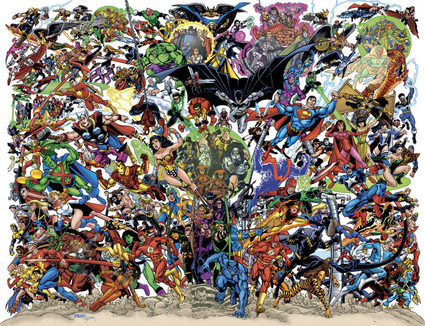
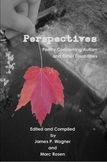
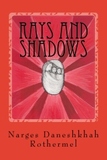
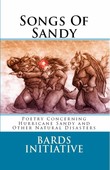
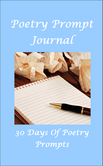

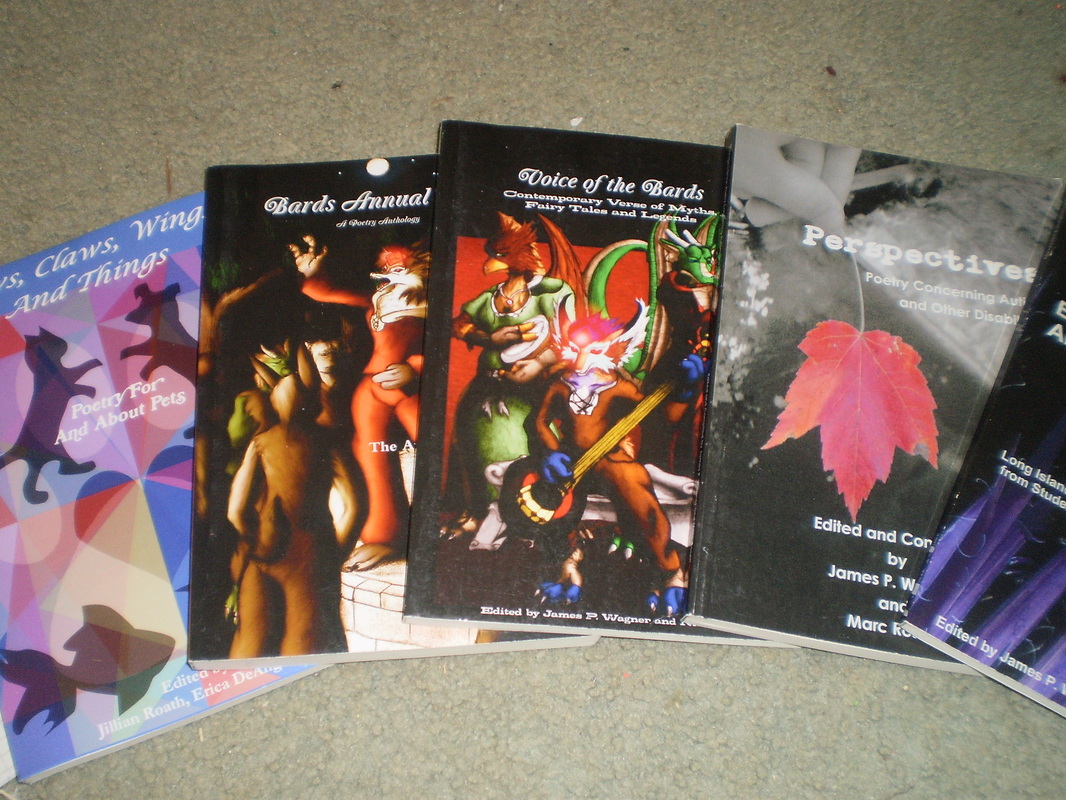
 RSS Feed
RSS Feed